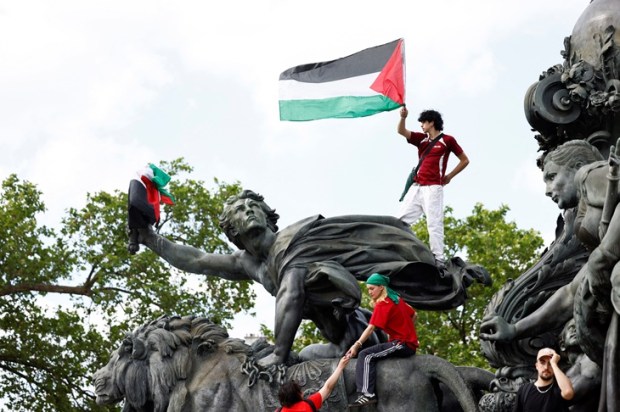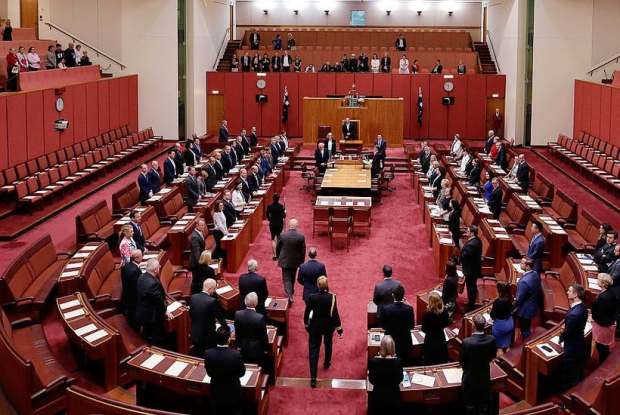There is no doubt that the Ecuadorian assault on the Mexican Embassy in the capital Quito appears to be an extraordinary violation of international law. But the universal condemnation of this unsavoury event has missed a poignant, but nevertheless important, point: a willingness on the part of Ecuador to do what it does not want other nations to do to itself.
Under international law, the premises and grounds of a foreign embassy are part of the sovereign territory of the foreign state, and therefore, the assault on the mission constitutes a flagrant violation of international law. According to Article 22 of the United Nations Convention on Diplomatic Relations, adopted in 1961, ‘The premises of the mission shall be inviolable. The agents of the receiving State may not enter them, except with the consent of the head of the mission’ and ‘the premises of the mission, their furnishings and other property thereon and the means of transport of the mission shall be immune from search, requisition, attachment, or execution’.
Although Article 22 is clear, Ecuadorian security forces raided the premises of the Mexican embassy on Friday, April 5. The security forces allegedly used a battering ram to gain access to the embassy and assaulted the embassy’s staff, including the ambassador, in the process. Ecuador justified the raid on the ground that the Mexican embassy was used for non-diplomatic purposes. Specifically, on April 5, but prior to the raid, the Ecuadorian government complained that Mexico had granted asylum to a former Ecuadorian Vice President who had been accused of corruption. The purpose of the raid was to secure the arrest of Jorge Glas, a left-wing politician who had sought political asylum in December 2023 after an arrest warrant was issued against him.
Not surprisingly, the international community, including the United Nations, unanimously and unconditionally condemned the raid. The Mexican President, Andres Manuel Lopez Obrador, characterised the raid as ‘authoritarian’ and instructed his Foreign Minister, Alicia Barcena, to withdraw its Mexican personnel from the embassy.
Of course, what happened in Quito is not an isolated event. There are numerous instances in the past where an embassy or a consulate has been raided. In most of these invasions, however, non-state actors attacked the premises of diplomatic missions. But sometimes, these attackers acted on the instructions, or with the support, of state authorities that offered encouragement. A prominent example is the violation of the American Embassy in Tehran on November 4, 1979, when Iranian students overwhelmed the embassy with the connivance of the strict Islamist regime. In that raid, 66 American citizens were taken and only released a year later, on the first day of the presidency of President Ronald Reagan. Closer to Australia, it is useful to remind readers of the bombing of the Australian Embassy in Jakarta on September 9, 2004, which resulted in the death of nine people and many wounded. But the storming of the Mexican embassy building in Quito still stands out as involving the direct participation of a receiving state in the desecration of a foreign mission.
Yet, the raid raises an interesting point – overlooked by most media outlets. This is the Ecuador that offered Julian Paul Assange asylum in its Embassy in London from June 2012 to April 2019 when he was forcefully removed from the embassy. The Assange case is not unlike the case of Glas: an alleged criminal who sought asylum in a ‘friendly’ embassy. During that time, police constantly surrounded or watched the Ecuadorian Embassy in London, but they did not venture into the premises to arrest him. Assange was only evicted in 2019 when the British police were invited into the embassy to arrest him. Assange was then taken to Belmarsh prison where he still languishes waiting on a final decision in his fight to avoid extradition to the United States.
Would Ecuador have countenanced a forced removal of Assange by British police and condoned the storming of its embassy in London, to gain access to the embassy and to arrest Assange? Not likely! Surely, Ecuador would have lambasted the use of force and highlighted the ‘unprecedented’ invasion of its embassy if that had occurred. Hence, its desecration of the Mexican embassy in Quito is an egregious example of a state doing what it does not want to be done to itself.
Although justifying the unrelenting condemnation of Ecuador for violating the sovereignty of Mexico, the specific language of the Convention on Diplomatic Relations is powerless to prevent the duplicitous and hypocritical attitude displayed by the assault on the Mexican embassy. Indeed, it needs to be emphasised that the violation of Mexican sovereignty constitutes a violation of the international ‘rule of law’. While an isolated violation may not affect the integrity of the rule, a state-sponsored willingness to undertake actions which the state would not like to be done to itself, brings the rule of law in disrepute. Respect for the rule of law is necessary for the maintenance of stable international diplomatic relations. Stability would be adversely affected, perhaps even fatally, if the storming of the Mexican embassy were to serve as a precedent that condones violations of the sanctity of diplomatic missions for the purpose of arresting an alleged criminal.
Hence, it is useful to be reminded of the ‘Golden Rule’ coined by the eminent German philosopher, Immanuel Kant, who reportedly advised: ‘Act as you would want all other people to act towards all other people.’ Kant improved on his golden rule when he exhorted rational people to act as if this rule is a universal principle – a categorical imperative.
Kant’s exhortation should thus encourage commentators to place the event in Quito in context, by considering the consequences of the raid on the maintenance and nurturing of the rule of law. When viewed in this light, the raid on the Mexican embassy can hardly be justified, but instead increases the level of revulsion spawned by the brutal tactics employed to arrest an alleged criminal.

























